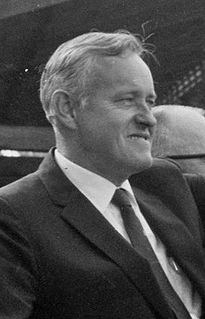A Quote by Gabor Mate
A hurt is at the center of all addictive behaviors. . . . The wound may not be as deep and the ache not as excruciating, and it may even be entirely hidden—but it’s there. As we’ll see, the effects of early stress or adverse experiences directly shape both the psychology and the neurobiology of addiction in the brain
Related Quotes
Everyone has the ability to increase resilience to stress. It requires hard work and dedication, but over time, you can equip yourself to handle whatever life throws your way without adverse effects to your health. Training your brain to manage stress won't just affect the quality of your life, but perhaps even the length of it.
Men do change, and change comes like a little wind that ruffles the curtains at dawn, and it comes like the stealthy perfume of wildflowers hidden in the grass. Change may be announced by a small ache, so that you think you're catching cold. Or you may feel a faint disgust for something you loved yesterday. It may even take the form of a hunger that peanuts won't satisfy. Isn't overeating said to be one of the strongest symptoms of discontent. And isn't discontent the lever of change?
You all know I have terminal cancer—and I have a lot of it. But what you may not know is that stress induces its spread and induces its activity. Stress may even bring it on. Yet stress is the fuel of the activist. This activist loves Oregon more than he loves life. I know I can't have both very long. The trade-offs are all right with me. But if the legacy we helped give Oregon and which made it twinkle from afar—if it goes, then I guess I wouldn't want to live in Oregon anyhow.
Those who write may think they know their target market. They may even feel they can shape the work to fit it. If this is true of you, you have more control over your creative process than I do. Even so, I humbly submit that you try letting your writing shape your target market instead and see what happens.
There is a place deep, deep inside every person that is hidden and hard to find. If things get bad enough and life gets too hard, though, some people will go to that place and never come back from it. Certainly, all outward appearances will suggest otherwise. They will look as they always did. They may even act somewhat like their old selves, but the truth is, the real truth is that they are hiding in this place deep inside where no one can touch or hurt them anymore.
Most people have come to prefer certain of lifes experiences and deny and reject others, unaware of the value of the hidden things that may come wrapped in plain and even ugly paper. In avoiding all pain and seeking comfort at all costs, we may be left without intimacy or compassion; in rejecting change and risk we often cheat ourselves of the quest; in denying our suffering we may never know our strength or our greatness
The brain, or cerebrum, is a material entity located inside the skull which may be inspected, touched, weighed, and measured. It is composed of chemicals, enzymes, and humors which may be analyzed. Its structure is characterized by neurons, pathways, and synapses which may be examined directly when they are properly magnified.
We still know so little about how the brain interacts with the body chemistry or, for that matter, whether we should be talking about the brain or the mind, that it would be perilous to hazard any guess about the way Abraham Lincoln's biological health may or may not have affected him. Of course, we don't have Lincoln on hand to ask him directly; but even if we did, we still might not be able to make sense of how all the parts worked together.




































